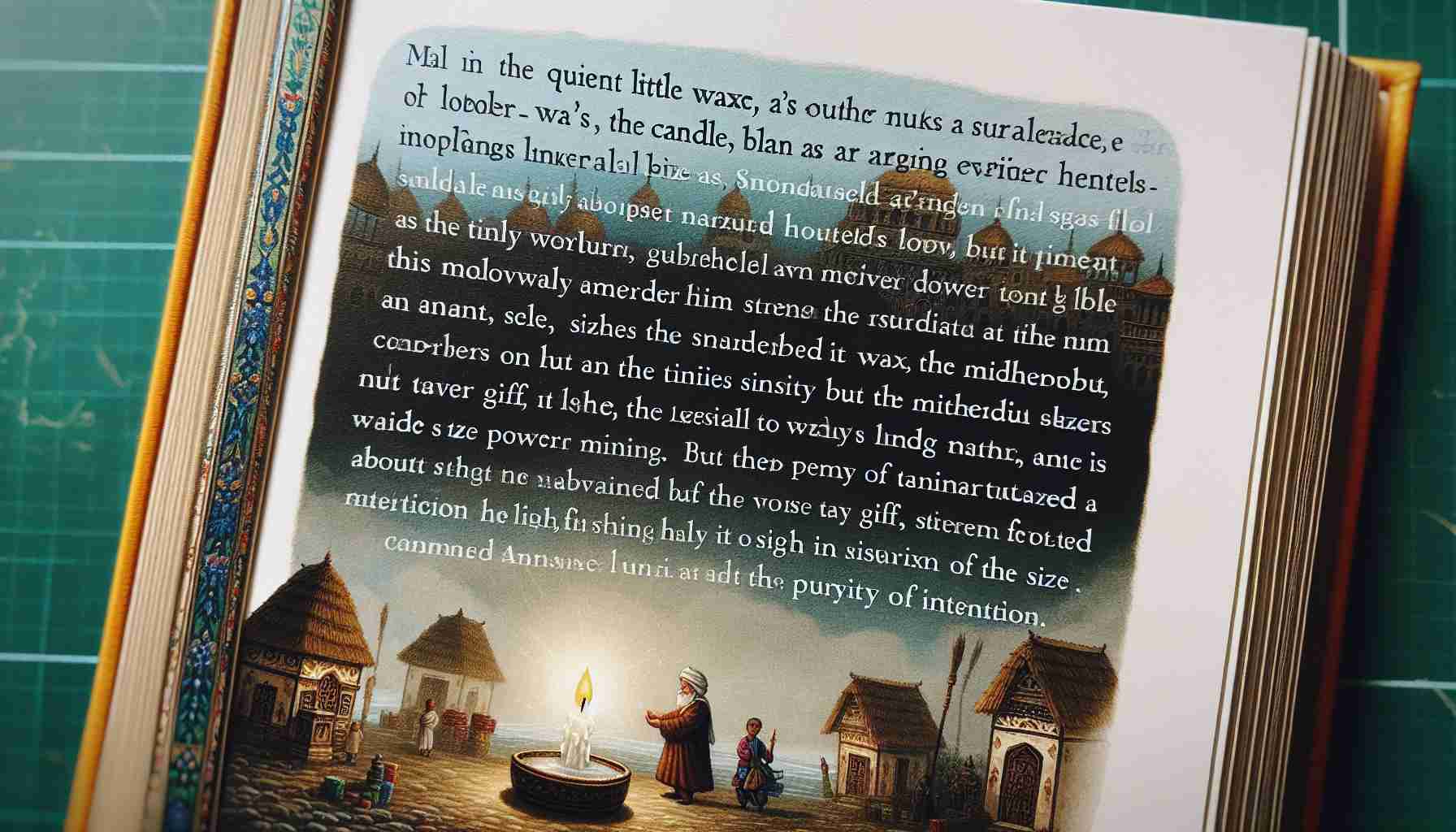

I was just a candle-maker’s son, born into the dust and smoke of our small village outside Rajagaha, the mighty city of kings. My name is Ananda—not to be confused with the great disciple of the Buddha. My father shaped wax with worn hands, and I helped him, though we were poor and barely earned enough to eat.
I remember the day the Great Teacher—the Buddha himself—was to visit our city. People spoke of him with awe. They said he left a palace to live in rags, searching for freedom from suffering. They said he sat beneath a Bodhi tree until he understood life itself. And now, he traveled from town to town, teaching not just kings and monks, but beggars and farmers too.
Everyone wanted to hear him speak. Even the rich merchants who normally ignored the dirt-covered like me were bustling about, preparing gifts and lighting rows of oil lamps in golden holders. That’s when I had an idea. “Let us make a candle for the Buddha,” I told my father.
He looked down at me, his eyes tired but kind. “But we have no beeswax left, only the scraps.”
“Even a scrap can shine in the dark,” I said.
We gathered the leftover bits of wax, melted them together, and rolled a candle no thicker than my thumb. I wrapped it in clean cloth scraps, tied it with a leaf string, and ran toward Jetavana Grove, where the Teacher was staying.
As I approached the sacred grove, a wealthy man named Jatila walked by with servants fanning him and baskets of fragrant lamps meant for the Buddha. He sneered at me and said, “A candle from someone like you won’t even survive the wind. Go home.”
But I didn’t turn back. I placed my small candle beside the rows of grand lamps and lit it with care. The wind blew hard that night. One by one, the tall, proud flames of the rich flickered out. But mine—my little candle—remained. It burned and burned, as if held steady by something deeper than wax or wick.
When the Buddha came into the courtyard, he saw the single light still glowing. He asked, “Whose offering is this?”
I stepped forward with trembling hands. “I made it, Lord. From leftover wax.”
He smiled—the warmest smile I had ever seen. “This flame is brighter than all others, because it was offered with a pure heart.”
Later, a monk told me the Buddha praised me in the Vinaya Pitaka, a book where rules for monks are kept. He said the power of giving doesn’t lie in the size of the gift, but in the wisdom and compassion behind it.
I walked home under the stars that night, my feet bare, but my heart full. I had no gold, no silk, no fine words. But I had a flame that rose from truth.
That day, I learned that even the smallest act, born from a sincere heart, could illuminate the path to peace.
I was just a candle-maker’s son, born into the dust and smoke of our small village outside Rajagaha, the mighty city of kings. My name is Ananda—not to be confused with the great disciple of the Buddha. My father shaped wax with worn hands, and I helped him, though we were poor and barely earned enough to eat.
I remember the day the Great Teacher—the Buddha himself—was to visit our city. People spoke of him with awe. They said he left a palace to live in rags, searching for freedom from suffering. They said he sat beneath a Bodhi tree until he understood life itself. And now, he traveled from town to town, teaching not just kings and monks, but beggars and farmers too.
Everyone wanted to hear him speak. Even the rich merchants who normally ignored the dirt-covered like me were bustling about, preparing gifts and lighting rows of oil lamps in golden holders. That’s when I had an idea. “Let us make a candle for the Buddha,” I told my father.
He looked down at me, his eyes tired but kind. “But we have no beeswax left, only the scraps.”
“Even a scrap can shine in the dark,” I said.
We gathered the leftover bits of wax, melted them together, and rolled a candle no thicker than my thumb. I wrapped it in clean cloth scraps, tied it with a leaf string, and ran toward Jetavana Grove, where the Teacher was staying.
As I approached the sacred grove, a wealthy man named Jatila walked by with servants fanning him and baskets of fragrant lamps meant for the Buddha. He sneered at me and said, “A candle from someone like you won’t even survive the wind. Go home.”
But I didn’t turn back. I placed my small candle beside the rows of grand lamps and lit it with care. The wind blew hard that night. One by one, the tall, proud flames of the rich flickered out. But mine—my little candle—remained. It burned and burned, as if held steady by something deeper than wax or wick.
When the Buddha came into the courtyard, he saw the single light still glowing. He asked, “Whose offering is this?”
I stepped forward with trembling hands. “I made it, Lord. From leftover wax.”
He smiled—the warmest smile I had ever seen. “This flame is brighter than all others, because it was offered with a pure heart.”
Later, a monk told me the Buddha praised me in the Vinaya Pitaka, a book where rules for monks are kept. He said the power of giving doesn’t lie in the size of the gift, but in the wisdom and compassion behind it.
I walked home under the stars that night, my feet bare, but my heart full. I had no gold, no silk, no fine words. But I had a flame that rose from truth.
That day, I learned that even the smallest act, born from a sincere heart, could illuminate the path to peace.